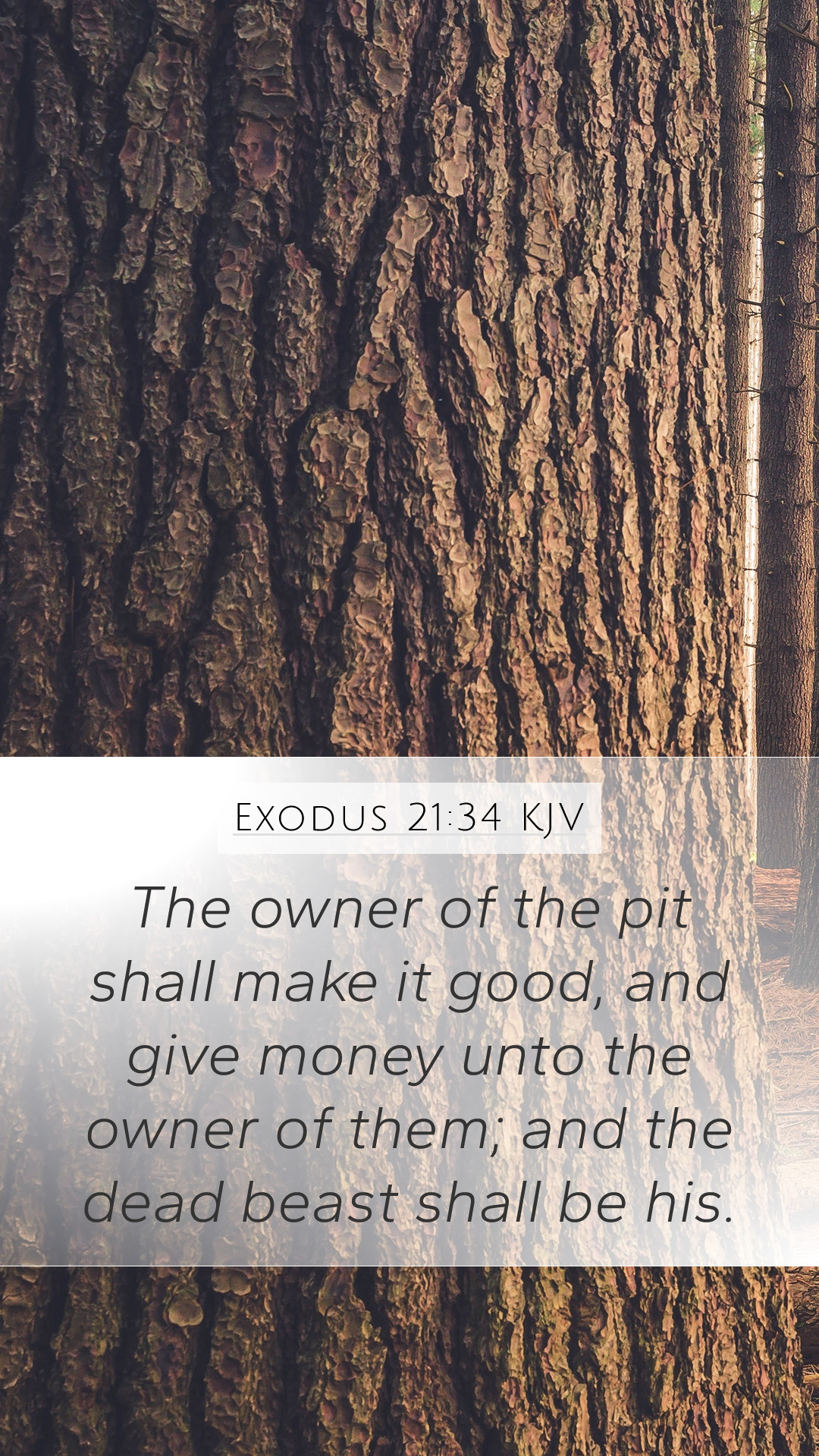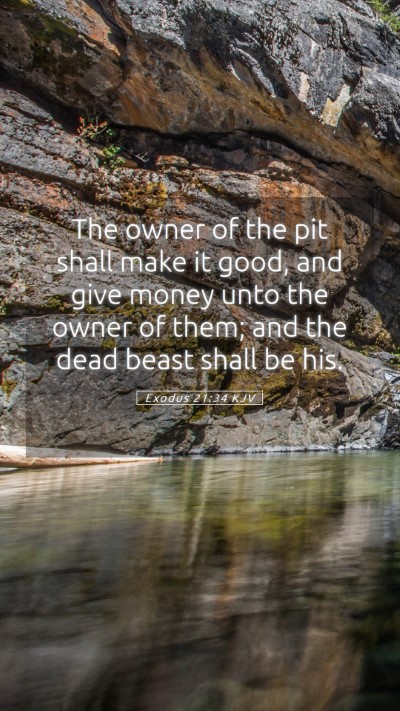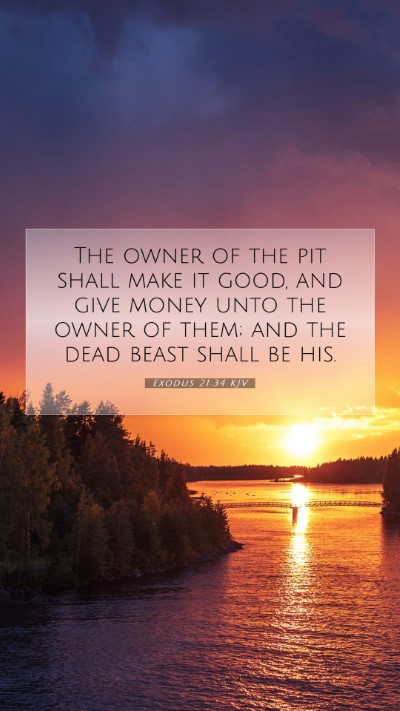Understanding Exodus 21:34 - Bible Verse Commentary
Exodus 21:34 reads: "That the owner of the pit shall make it good, and give money unto the owner of them; and the dead beast shall be his." This verse addresses the responsibilities associated with negligence and property damage, specifically within the context of livestock. Below is a combined analysis from various public domain commentaries that shed light on this verse.
Verse Context and General Meaning
Exodus 21 outlines several laws focused on the protection of individuals and property. The specific verse (Exodus 21:34) discusses a situation where a negligence occurs—more specifically, when an animal falls into a pit that a person owns. The owner of the pit is required to compensate the owner of the animal that has died as a result.
Matthew Henry emphasizes that this law illustrates the principle of personal responsibility. He suggests that God incorporates these regulations to instill a sense of care and accountability among His people. Henry notes that the concept of indemnity for losses highlights both justice and mercy within the community.
Albert Barnes provides additional insight by elaborating on the implications of negligence. He states that the law recognizes the importance of ensuring safety in communal living and that owners must act to mitigate potential hazards. This responsibility highlights the social aspect of the law and the expected conduct among individuals.
Adam Clarke further expands this notion, indicating that the intent behind such a law is to cultivate a society where individuals consider the impact of their property and actions on others. Clarke points out that the broader application of this principle extends beyond this specific situation to govern ethical behavior among individuals at all times.
Key Themes and Insights
- Accountability: Exodus 21:34 underscores the importance of being accountable for one's property and its effects on others.
- Justice and Mercy: The requirement for compensation suggests that while accidents happen, there is an expectation for reparations that reflects a merciful and just society.
- Community Well-Being: The law serves to protect the interests of all community members, reflecting the communal ethos promoted in the Old Testament.
Application in Daily Life
The principles captured in Exodus 21:34 can be instructive for modern readers. They remind us that negligence, whether intentional or not, can affect others and that we must navigate our responsibilities thoughtfully. Application of these principles can be seen in various day-to-day scenarios—whether in family settings, workplaces, or public interactions.
For those involved in Bible study groups, discussions around this verse can delve into topics related to the justice system, ethical treatment of others, and the need for personal integrity. Understanding Scripture and applying its teachings effectively lead to a harmonious and responsible community.
Related Bible Cross References
- Exodus 22:14 - which addresses similar themes of responsibility regarding borrowed property.
- Leviticus 24:18 - discussing similar compensation principles.
- Deuteronomy 19:21 - outlining the concept of equitable justice.
Conclusion
Exodus 21:34 serves as a pertinent reminder of the importance of accountability and community responsibility. By studying this passage from a biblical exegesis perspective, individuals can glean insights that are not only relevant in ancient times but also applicable in current societal contexts. Engaging in online Bible study or using Bible study tools can enhance one's understanding and interpretation of such scripture for both personal growth and group discussion.
Ultimately, understanding the meaning of Bible verses like Exodus 21:34 allows believers to live out their faith in ways that align with biblical teaching, promoting justice, mercy, and responsible living within their communities.


